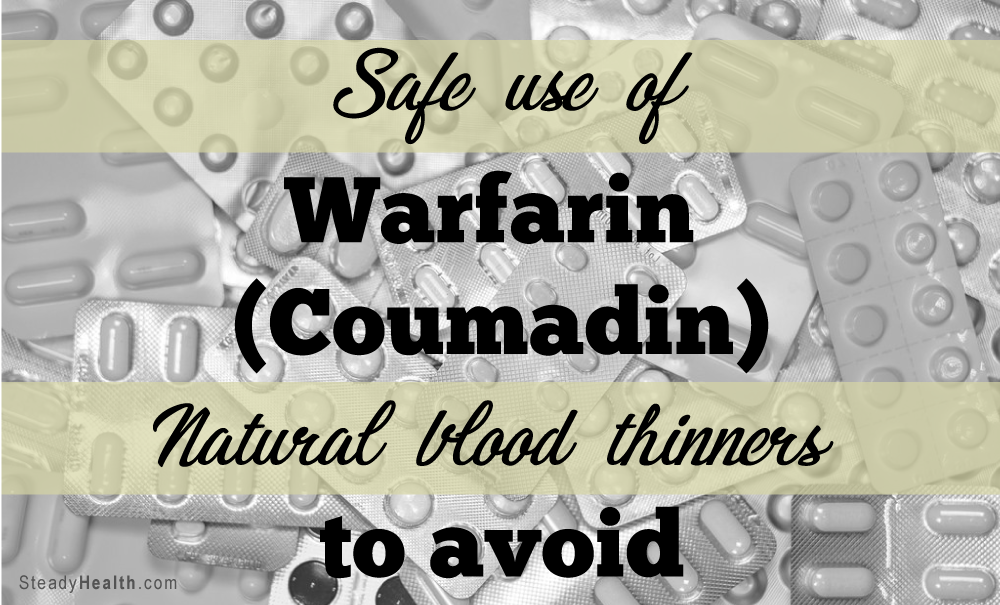



They also asked about common dietary supplements, including Chinese herbs, various fish oils, ginger and herbal teas. Blood thinners can stop clots from forming, slow down the formation of clots. They asked patients how often they took over-the-counter remedies like aspirin, ibuprofen, naproxen, and acetaminophen. In the current study, researchers surveyed patients prescribed apixaban in 2018. Which people would be on this list You might be surprised to learn that those at risk for 'idiopathic' (unprovoked) blood clotting events include: Women who take oral contraceptives. As a result, they may not be aware of potential drug interactions. These are people who may need anticoagulant drugs or at least over the counter blood thinners like Aspirin. Unlike the older blood-thinner warfarin, which required regular blood tests to prevent side effects, most people prescribed apixaban or other NOACs are not followed in specialized anticoagulation clinics or monthly by health care professionals, the study team writes. Others include dabigatran, rivaroxaban, and edoxaban. Apixaban is one of the most frequently prescribed. including prescription and over-the-counter medicines. NOACs are the drug of choice for stroke prevention in patients with atrial fibrillation, which occurs most frequently in older patients. Blood thinners prevent new blood clots from forming and keep existing clots from getting larger. This can lead to the formation of clots that can then travel through the arteries to the brain. As a result, blood doesn’t flow smoothly through the heart. In atrial fibrillation, electrical impulses in the upper chambers of the heart are chaotic, causing the heart muscle to quiver rather than contracting normally. “This study demonstrates that patients have limited knowledge about potential serious interactions between OTC products and apixaban.” Derjung Tarn of the David Geffen School of Medicine at UCLA and colleagues write in the Journal of the American Geriatrics Society. “New OTC products are constantly being adopted by patients,” Dr. If you take a blood thinner, it is important to talk with your doctor first before beginning any new medications - including over-the-counter items. And almost 7% of them regularly took two or more over-the-counter medicines that could be a dangerous mix with apixaban. This includes prescription and over-the-counter. The study focused on 791 patients prescribed apixaban, one of several newer blood thinners known as NOACs (non-vitamin K antagonist oral anticoagulants) that are recommended to prevent stroke in people with atrial fibrillation, a heart rhythm disorder.Īlmost all of these patients used over-the-counter medicines, and 33% of them took at least one nonprescription drug daily or most days of the week with the potential to cause dangerous side effects when combined with apixaban. Before taking a blood thinner, tell your healthcare provider about all medicines and supplements you take. (Reuters Health) - People taking blood-thinning medications often use over-the-counter (OTC) medicines with the potential to cause dangerous internal bleeding, a recent study suggests.


 0 kommentar(er)
0 kommentar(er)
